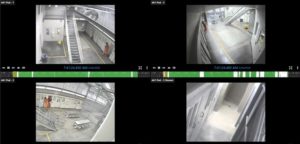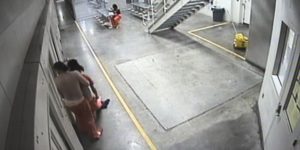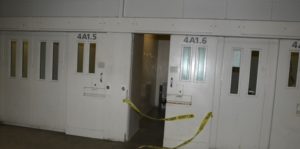Piccuta Obtains Historic $11.75 Million Dollar Civil Rights Settlement for Inmate Attacked In Jail
This month, PLG attorney, Charles Tony Piccuta, finalized a historic civil rights settlement of $11.75 million dollars. Piccuta is the founding partner of the Piccuta Law Group, LLP. He is licensed to practice law in Arizona, California, Illinois and Nevada. He took the bar exams of all four of those states and passed them all on the first try.
Piccuta actively practices and handles cases throughout Arizona and California. The $11.75 million dollar settlement reached was in a federal civil right case he filed in Arizona. The lawsuit was filed on behalf of a young man who was in custody with the Maricopa County Sheriff’s Office. It is the largest settlement ever paid by Maricopa County and its Sheriff’s Office to a single individual for a jail-related injury.
It is the largest settlement ever paid by Maricopa County and its Sheriff’s Office to a single individual for a jail-related injury.
Details Regarding the Jail Assault
The client was eighteen years old when he was arrested and taken into custody for a probation violation. Specifically, for not paying an $89 court-ordered fee. He was then housed at Maricopa County’s 4th Avenue Jail. The 4th Avenue Jail is run by the Maricopa County Sheriff’s Office—much like Monterey County Jail is run by the Monterey County’s Sheriff’s Office.
The client was put into a housing category called closed custody at the jail. According to the County’s policies and procedures, closed custody is a housing category for the most dangerous inmates. Strict rules apply to keeping these inmates separated from other inmates and what precautions must be taken when transporting them.
The client was housed there because he had a previous charge for assault on a law enforcement officer. That charge stemmed from accidentally striking an officer who was breaking up a fight between him and another minor when he was in juvenile detention. He should not have been in closed custody, although that claim was not advanced in the civil rights lawsuit filed by Piccuta.
While in closed custody, the client was attacked and beaten into a coma by another inmate. That inmate had a long rap sheet and a history of violent felonies. This included strong arm robbery and battery. The inmate struck and stomped the client over 40 times with no one intervening.
The jail had a sophisticated surveillance system and video cameras which covered nearly every inch of the jail. Video cameras were positioned in the area where the client was attacked. The video cameras were supposed to be monitored constantly by a guard in a control tower. That same guard had the ability to notify other officers of problems and to sound alarms when needed.

However, the guard in the control tower did not adequately monitor the situation or area where the client was attacked. The guard did not sound any alarms or take any action. Simply put, no one did anything during the attack of the client.
After the client was attacked, he was then left seizing on the floor for approximately 10 minutes. After that, the inmate who beat him celebrated and was laughing and walking around the building bragging to other inmates about the attack. After the client did not regain consciousness, the inmate who beat him drug him approximately 50 feet and placed him back into his own cell.
The client then seized in his cell for approximately 1 hour and 45 minutes until he was discovered by a nurse doing medical rounds. This was despite the fact that several security walks were performed in the interim. In addition, all of this was captured on surveillance and should have been caught early by the officer in the control tower.

Details Regarding the Jail Injury
The client sustained a very significant brain injury. The County failed to notify his family. His mother learned about the injury when she was contacted by the hospital several days later requesting end of life permission. She refused.
Initially, the client could not breathe on his own or feed himself. He was completely non-responsive. He required a ventilator to breathe and was given nutrition intravenously. The neurologists who treated him gave the prognosis that he would be completely incapacitated and in a “vegetative state” for the rest of his life.
The client made a remarkable recovery and was eventually able to breathe on his own and eat without intravenous nutrition. Despite his remarkable recovery, he was left severely mentally compromised. He now has difficulty taking care of himself and needs assistance with all activities of daily living. This includes feeding, dressing and bathing himself. The client also needs assistance walking and has impaired mobility. The client has slurred speech and difficulty with fine motor movements in his hands which are both contracted.
The Civil Rights Claims Advanced for the Injured Inmate
Piccuta brought some very difficult claims under 42 USC 1983. This included claims for failure to protect and deliberate indifference to medical needs. Piccuta also brought claims against Sheriff Penzone, in both his individual and supervisory capacity, for failure to train and supervise.
Piccuta also advanced Monell Claims against Sheriff Penzone as a final policy maker and for failure to train. Since the client was an incarcerated person at the time of the attack the 8th Amendment applied, not the 14th Amendment. There is a heightened standard for Eighth Amendment claims that is very hard to prove and made the case especially challenging and difficult.
What Piccuta Uncovered During the Civil Rights Lawsuit
After the lawsuit was filed, the parties began the initial stages of litigation including discovery. Discovery is the stage of a case where both sides have the opportunity to gather evidence from each other and third parties. This includes requesting documents, subpoenaing records, taking sworn statements (depositions), asking for admissions, asking and answering written questions (interrogatories), among other things.
Piccuta obtained over 10,000 pages of documents from the County, Sheriff and other Defendants. In the approximately 10,000 pages of documents he received, there was a single reference to something called “modified closed custody.” It was described as something the custodial staff did at the jail which allowed three closed custody inmates access to the day room at the same time.
The day room is the area outside of the cells. In the particular area where the client was housed, it included some open space and picnic benches. It also included access to the showers.

The County claimed that the purpose of “modified closed custody” was to see if these dangerous inmates could acclimate and eventually program into general population. However, Piccuta believed it was really because the deputies at the Jail wanted to get day room access over with faster. Piccuta dove deep into this area and focused on exploiting the practice of “modified closed custody.”
Piccuta Breaks the Case
This eventually became the key to the case. Piccuta fought the other side and forced them to answer questions and produce documents addressing modified closed custody. Disputes arose because the County, Sheriff and Defendants wanted to conceal this information. Piccuta forced the issue and eventually the Court ordered the other side to answer the questions Piccuta asked and to provide the information he requested.
Piccuta was able to establish that there were no formal policies and procedures regarding “modified closed custody.” He discovered there were no emails about it and not a single written document discussing it. He proved there were no statistics on it and no information on who vetted it. There was no information regarding who tested it for safety and who instituted it. There was simply no paper trail whatsoever about it. Piccuta established it was essentially some “seat of your pants” practice that the County and its Sheriff were employing.

This was especially problematic for the County and the Sheriff because every aspect of the Jail system is heavily controlled and rule based. There are hundreds of pages of documents dedicated to policies and procedures for the safe and efficient functioning of the jail. There are also in-house jail manuals that govern the protocols for custodial staff at the jail. It was indefensible that there could be a housing status and custodial practice employed at the jail with no policies and procedures addressing it.
The Experts Consulted and Used
Piccuta employed multiple experts to help deliver the result. He consulted with multiple neurologists, psychiatrists and doctors. He consulted with jails practices and procedures experts. He employed a life care planner and economist to calculate the Clients’ future medical needs and to prepare a life care plan and medical costs projection.
He also employed a professional videographer and production company to prepare a day in the life video. He hired probate counsel to assist with the establishment of a conservatorship and probate approval of the settlement. A professional fiduciary was also hired and enrolled to oversee the handling of the settlement funds the client ultimately received.
The Historic Civil Rights Settlement Was the Largest Ever Paid By the County
Piccuta attended mediation in January of 2022 and the settlement was initially reached. The settlement was then subject to approval by a probate court and the County Board of Supervisors. The total settlement reached was for $11.75 million dollars.
In June 2022, the settlement was approved and paid. It is the largest settlement ever paid to a single defendant by the County for a jail-related injury. Piccuta was able to obtain this result in less than two years from the date he first took the case.
The settlement included $10.5 Million for Piccuta’s injured client. It also included $1.25 Million for the injured client’s mother. The mother’s claim was for the loss of the relationship with her son and his love, care and companionship. Piccuta represented both the injured client and his mother throughout.
The Settlement Drew Heavy Media Coverage and Made National News
The Maricopa County Sheriff’s Office is one of the five largest Sheriff Departments in the United States. As a result, the settlement and result were reported on heavily both throughout Arizona and nationally. Piccuta was interviewed by several news stations that reported on the case. Those stories and Piccuta’s televised interviews can be watched by clicking the links below.
https://www.youtube.com/watch?v=nG3XXfNAHjA
https://www.youtube.com/watch?v=XcZnjBBcODw
The story appeared across the web with major national news publications reporting about it. This includes U.S. News and World Report, Yahoo.com, Newsbreak.com, among others. Locally, it was covered by over a dozen media outlets.
Contact an Experienced Civil Rights Lawyer
If you or a loved one has suffered a civil rights violation, contact the Piccuta Law Group today. Our firm has a proven track record of advancing and winning hard civil rights cases. Our experienced civil rights lawyers have delivered record results. A consultation is free and if we take your case, we will do so without you paying a single cent up front. We only earn a fee if we recover for you. Contact us today for a free consultation.
About the author: The content on this page was written by California civil rights lawyer and Monterey personal injury attorney Charles “Tony” Piccuta. Piccuta graduated with honors from Indiana University-Maurer School of Law in Bloomington, Indiana (Previously Top 35 US News & World Report). Piccuta took and passed the State bars of Arizona, California, Illinois and Nevada (all on the first try). He actively practices throughout California and Arizona. He is a winning trial attorney that regularly handles serious personal injury cases and civil rights lawsuits. He has obtained six and seven figure verdicts in both state and federal court. In 2022 he set a record $11.75 million dollar settlement for a civil rights case against Maricopa County Sheriff’s Office. He has been recognized by Super Lawyers for six years straight. He is AV Rated by Martindale Hubble. He is a member of the Consumer Attorneys of California, American Association for Justice, National Police Accountability Project, Arizona Association of Justice, Maricopa County Bar Association and Scottsdale Bar Association, among other organizations.
Disclaimer: The information on this web site is attorney advertising and is for informational purposes only. It does not constitute legal advice. Reading and relying upon the content on this page does not create an attorney-client relationship. If you are seeking legal advice, you should contact our law firm for a free consultation and to discuss your specific case and issues.

